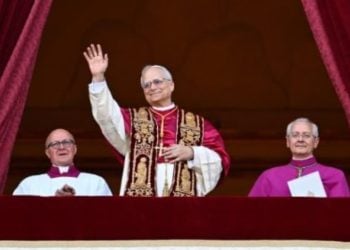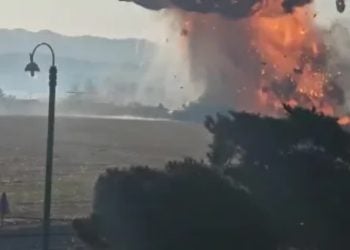O governo de Bashar Al-assad realiza neste domingo as primeiras eleições municipais da Síria desde 2011, quando teve início a guerra civil no país. Mais de 40 mil candidatos concorrem a 18.478 cargos em diversas províncias, segundo o Ministério de Administração Local. Áreas dominadas por grupos de oposição e refugiados, contudo, foram excluídas das votações.
Antes do início dos conflitos na Síria, cerca de 3 milhões de pessoas, de uma população total de 22 milhões, viviam em terras controladas por insurgentes, concentradas na província de Idlib, no norte, e regiões próximas. Além delas, cerca de 5,6 milhões de refugiados sírios não estão participando das eleições.
A adesão dos eleitores foi modesta na capital Damasco, com a baixa expectativa de renovação nas administrações municipais. Há expectativa de que candidatos do atual grupo do governo, Baath, fiquem com a maior parte dos cargos. O partido controla órgãos políticos e de segurança da Síria desde a década de 1960.
Em 2014, foram realizadas eleições presidenciais no país, mas apenas em áreas limitadas sob controle do regime de Bashar Al-assad.
A guerra travada pelo presidente contra forças de oposição e o grupo Estado Islâmico já custou ao país mais de US$ 300 bilhões, de acordo com um estudo recente da Organização das Nações Unidas (ONU). Mais de 400 mil pessoas foram mortas no conflito, segundo organizações.
Algumas partes do país permanecem fora do controle do governo, como a região sob domínio dos curdos, no norte do pais, que conta com o apoio dos Estados Unidos e tem entre sua população árabes e grupos minoritários. O território é governado por seu próprio Conselho Democrático Sírio (SDC, na sigla em inglês), que se recusou a permitir a realização de eleições organizadas por Damasco.
Grupos de direitos humanos, contudo, têm criticado a administração local curda por contar com um único partido. A região promoveu eleições em 2017. Fonte: Associated Press.
More than 40,000 candidates are competing for 18,478 council seats, according to the Ministry of Local Administration. Polls are slated to close at 7 p.m. local time (1600 GMT).
Opposition-held areas were excluded from the polls. Some 3 million people of Syria’s pre-war population of 22 million live under opposition rule in the country’s northwest Idlib province and surrounding areas. Another 5.6 million are refuees abroad; they were also excluded from the vote.
Presidential elections were held in 2014 in limited areas of government Control.
Turnout was modest at stations in the Syrian capital and candidates aligned with the ruling Baath party were expected to win. The Baath party has controlled Syria’s political and security apparatuses since the 1960s.
r i BC-ML–Syria 2ndLd-Writethru 09-16 0978
BC-ML–Syria, 2nd Ld-Writethru,417
Kurds opt out of first local elections in Syria since 2011
AP Photo XBH101, XBH102, XBH103 Eds: Adds that opposition areas and refugees are excluded from the vote. With AP Photos.< ALBERT AJI
Associated Press DAMASCUS, Syria (AP) _ Syria held its first municipal elections since 2011 on Sunday, amid tensions with the country's self-administered Kurdish region, which refused to allow polls.
Turnout was modest at stations in the Syrian capital and candidates aligned with the ruling Baath party were expected to win. The Baath party has controlled Syria's political and security apparatuses since the 1960s.
Hassan Taraqji, a Baath candidate in Damascus, said reconstruction was a top priority for voters after more than seven years of civil war.
“We hope we can meet the people's aspirations and improve conditions and services in the city,'' he said.
The war waged by President Bashar Assad's government against local opposition forces and the Islamic State group has cost the country more than $300 billion in economic damage, according to a recent U.N. study. Observers say more than 400,000 people have been killed.
But parts of the country remain beyond Damascus' reach, including the U.S.-backed self-administered Kurdish region in north Syria, which also includes Arab and minority populations.
The region is governed by its own Syrian Democratic Council, which refused to allow the Damascus-organized elections to proceed on its territory.
“The regime wants us to remain under its rule and under the rule of the Baath,'' said Ibrahim Ibrahim, a spokesman for the administration.
Kurdish officials say they want a federalized Syria that respects the northeast's autonomy from Damascus and guarantees rights and privileges for national minorities.
High-level meetings between representatives of the SDC and Baath and federal officials in Damascus are yet to produce a breakthrough.
Damascus insists it will assert its authority over the whole country.
Hussein Dabboul, a Member of Parliament from Aleppo, a north Syrian city near the edges of the self-administration zone, said the SDC was “linked to foreign powers and to the United States, and it has certain objectives and targets.''
Human rights groups have criticized the Kurdish-led administration for single-party rule. The administration held local elections in 2017.
More than 40,000 candidates are competing for 18,478 council seats, according to the Ministry of Local Administration. Polls are slated to close at 7 p.m. local time (1600 GMT).
Opposition-held areas were excluded from the polls. Some 3 million people of Syria's pre-war population of 22 million live under opposition rule in the country's northwest Idlib province and surrounding areas. Another 5.6 million are refuees abroad; they were also excluded from the vote.
Presidential elections were held in 2014 in limited areas of government control.
___
Associated Press writer Philip Issa contributed from Beirut.
AP-WF-09-16-18 1249GMT<
D



